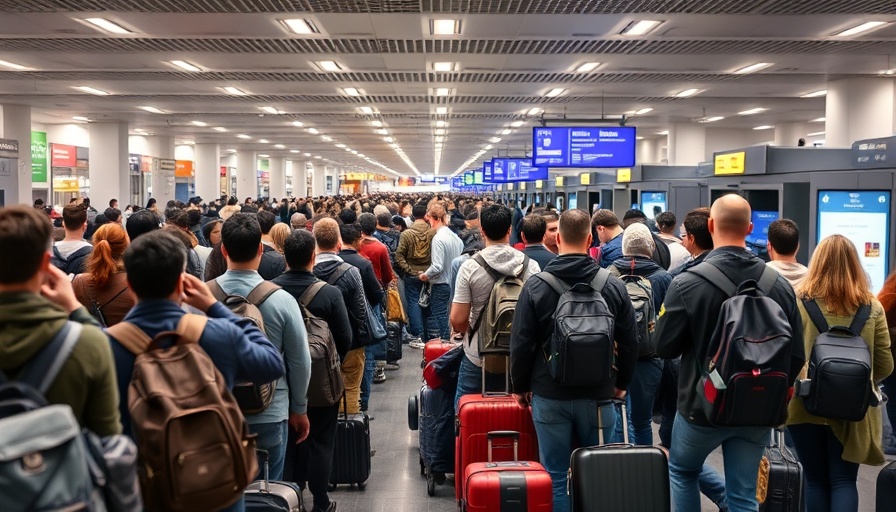
The Cost of Vacationing: What the Numbers Reveal
A recent survey by Bankrate has highlighted a crucial shift in Americans' travel plans for this summer. A striking one in four adults has opted to forego vacationing this year, citing steep costs as a principal reason. The survey revealed that while approximately 40% of respondents planned to take a domestic trip, only about 15% considered international travel, a considerable decrease compared to years prior.
Breaking Down the Financial Barriers to Travel
It’s clear that finances are playing a pivotal role in vacation planning this year. Among those who chose not to travel, 65% indicated that they felt they could not afford a trip. Daily living expenses are already weighing heavily on budgets, with 68% of respondents stating that their everyday costs are too high. In addition, 64% pointed to the inherent costs of travel as a significant barrier, while nearly a third reported pre-existing personal debt that influences their decision-making.
Changing Travel Landscape Under Economic Pressures
The context for these rising costs includes external factors like inflation and trade policies. As the U.S. dollar weakens—down nearly 10% since the beginning of the year—travelers may find increased prices at hotels and restaurants abroad. This economic climate, exacerbated by ongoing tariff discussions, indicates that potential travelers might face heightened costs if they decide to go overseas.
The Impact of Tariffs on Travel Choices
Travel arrangements are also being influenced by tariffs and their effects on service costs. As Claude Molinari, President and CEO of Visit Detroit, noted, a decline in cross-border travel, particularly from Canada—one of the largest groups of international visitors to the U.S.—could substantially impact the hospitality sector. With crossing points, like the Ambassador Bridge and Detroit-Windsor Tunnel reporting a drop in travel, we are reminded of the interconnected economic landscape affecting tourism.
Understanding the Traveler’s Mindset: Cash vs. Credit
Interestingly, more than half of the surveyed individuals expressed a preference for cash payments when financing vacations. While 29% indicated they would rely on credit or loans, the implications of these decisions highlight a growing desire among Americans to control their budgets more tightly amidst financial uncertainty. It’s a practical approach; however, it introduces a newfound hesitancy towards incurring additional debt.
A Broader View on Vacation Tactics
The implications of this survey resonate beyond just an individual’s choice to travel or stay home. For many, the concept of vacation has transformed from indulgent retreats to more budget-conscious endeavors. Americans may seek shorter trips, closer to home, or even creative staycations that allow enjoyment within financial limits. Exploring local treasures or enjoying backyard BBQs is becoming mutually beneficial for families seeking both adventure and economic feasibility.
Future Travel Trends: What Lies Ahead
As we look ahead, it becomes clear that economic trends will significantly shape the travel landscape. Factors such as interest rates, inflation, and currency strength are intertwined, holding the potential to either hinder or help vacation plans. Adapting to this changing environment will require flexibility and creativity from both travelers and the travel industry.
Preparing for Economic Influence on Travel Decisions
Travelers should consider how their financial situations will inform future travel choices. Budgeting for vacations, seeking out deals, and planning trips during off-peak seasons might not only lead to more affordable options but can also enhance the overall travel experience. Therefore, engaging in smart financial planning could transform how Americans approach vacations moving forward.
Ultimately, while the reality of rising costs is daunting, it also opens the door to innovation in how vacations are planned and enjoyed. Education on personal finance could enhance understanding and lead to new travel strategies that navigate the turbulent waters of economics without sacrificing the joy of exploration.
 Add Row
Add Row  Add
Add 




 Add Row
Add Row  Add
Add 








Write A Comment